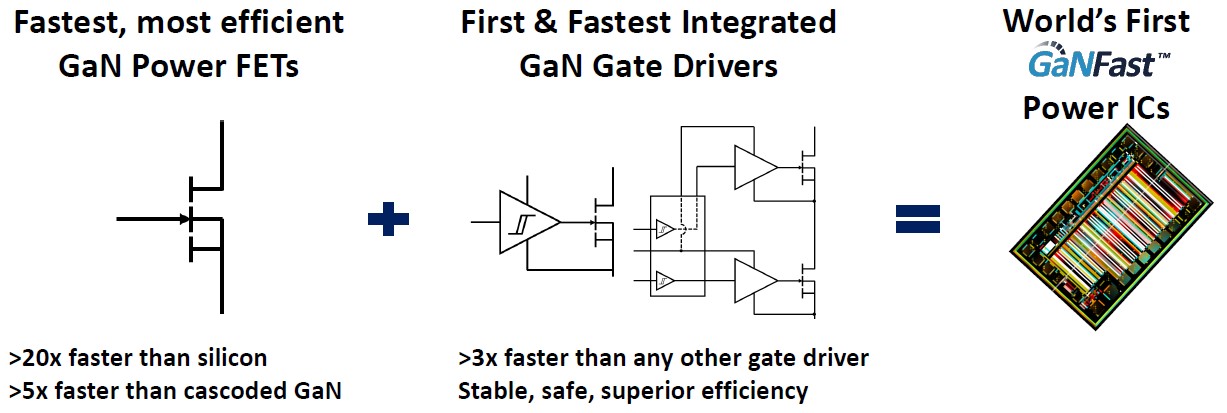Was the Invention of IC a Game-Changer?
Hey there! Discover how the invention of IC was a game-changer for the tech industry!

Source navitassemi.com
When Was IC Invented?
Integrated Circuit or IC is considered a tiny electronic revolution that has transformed the electronics industry and enabled many devices we use on a daily basis. It is composed of interconnected transistors, resistors, and capacitors that perform electrical functions with astonishing precision. But, do you know when IC was invented? Let’s take a look at the timeline of IC’s development and discover its history!
The Definition of IC
For starters, let’s define what an IC is. As mentioned earlier, it is an electronic circuit that is composed of inter-connected transistors, resistors, and capacitors to perform electrical functions. Its primary function is to provide the processing power and control to all electronic devices, from phones and computers to cars and airplanes.
The Early History of IC
Before the invention of ICs, all electronic devices were constructed with discrete components, which were bulky and unreliable. This is where the real story of IC began. IC was first invented and commercialized by Texas Instruments in 1958 by electrical engineer Jack Kilby. He proposed the concept of connecting transistors, resistors, and capacitors inside a single casing, leading to the birth of the first IC.
On September 12, 1958, Jack Kilby designed the first prototype of IC, which was a small, ceramic square. A day after, Kilby demonstrated the IC to the company's management, a demonstration that led to a significant breakthrough in electronics. After the demonstration, they knew the IC would revolutionize the field due to its small size, which allowed more circuits to be placed in a smaller place.
The Advancement of IC
The invention of the first IC opened the door to incredible possibilities, enabling developers to create more and more complicated circuits to support devices' functionality. After the successful demonstration, Kilby and Texas Instruments started developing ways to improve IC technology. In 1961, the first monolithic IC was introduced, revolutionizing the electronics industry by allowing the fabrication of many transistors on a single silicon chip, making the devices smaller.
Robert Noyce, who worked in Fairchild Semiconductor in the same year, developed a new IC technology called Planar IC. This technology allowed the creation of microprocessors, which utilized large numbers of transistors combined on a single chip, replacing the bulky, discrete transistors used in the early generations of computers. This technological breakthrough eventually led to the microchip, which is used in almost every digital device today.
Conclusion
Through years of innovation and teamwork, the IC has undergone many changes and improvements. From the first small ceramic square to the highly integrated ICs we have today, ICs have come a long way and will continue to develop in the future. So next time you use your smartphone, your laptop, or even your car, remember that the IC revolution is the key element that allows them to function effectively.
How IC Changed the World?
The Impact of IC on Electronics Industry
The integrated circuit (IC) is one of the most important technological advancements of the 20th century. It has changed the world in profound ways, especially in the electronics industry. ICs paved the way for miniaturization, which allowed electronic products such as calculators, computers, and smartphones to become smaller, faster, and more powerful.
The first electronic devices that used ICs were calculators, which were introduced in the early 1960s. These calculators were expensive and had limited functions, but they represented a significant technological breakthrough. Later in the 1970s, the price of ICs became more affordable, and their usage became widespread, revolutionizing the electronics industry. Today, almost all electronic products use ICs, from home appliances to medical devices.
IC technology has made electronic products cheaper, more reliable, and more energy-efficient. It has enabled many electronic products to become more accessible and affordable to consumers, which has contributed to an increase in demand for electronics around the world.
The Impact of IC on Society
IC technology has also made a significant impact on society. It has enabled the development of new technologies that have transformed the way people live, work, and communicate. GPS technology, for instance, has revolutionized the way people navigate unfamiliar places and has made transportation more efficient. ICs have also enabled the development of artificial intelligence, which has improved medical diagnosis and treatment.
The rise of social media and the internet is directly linked to IC technology. ICs have enabled the development of computers, networks, and servers that make up the internet. The internet has transformed the way we communicate, access information, and socialize with others. The invention of smartphones, which rely heavily on IC technology, has made it possible for people to stay connected to the internet and one another wherever they go.
The Future of IC
The future of IC technology looks promising, with new innovations being developed every day. One of the most exciting areas of development is quantum IC, which has the potential to revolutionize the computer industry. Quantum IC utilizes quantum mechanics to perform computations and communications, which would enable faster and more powerful computation than ever before. Quantum IC could enable the development of computers that can solve problems that classical computers could never solve. Another area of development is the use of ICs in medical devices, such as implantable sensors and pacemakers.
In conclusion, IC technology has changed the world in profound ways, from the way we communicate to the way we access information. ICs have made electronic products more powerful, smaller, and more energy-efficient. They have enabled the development of new technologies that have transformed the world. The future of IC looks bright, with quantum IC as one of the most promising areas of development.




Post a Comment for "Was the Invention of IC a Game-Changer?"